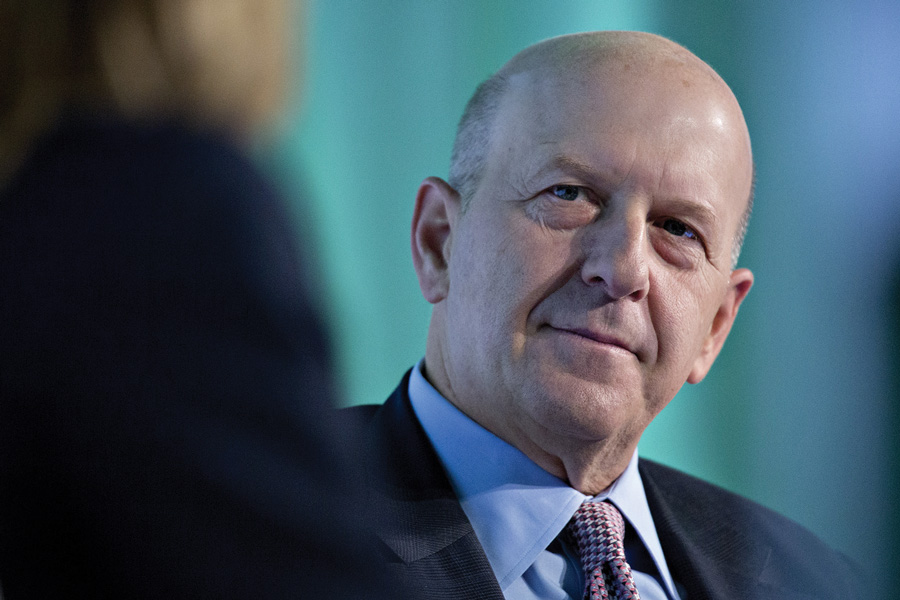

A prominent proxy advisory firm is telling shareholders to vote against Goldman Sachs Group Inc.’s executive pay plan after the Wall Street giant’s top leaders were given lofty raises in a year when profits slumped.
Glass Lewis & Co., a major voice on annual shareholder votes, cited the “significant disconnect between pay and performance” at New York-based Goldman in making its recommendation. The bank had boosted Chief Executive David Solomon’s compensation to $31 million, marking a 24 percent jump for a year when Goldman’s earnings plunged by a similar amount.
“This does not instill a sense of optimism that the ongoing disconnect will see improvement in the near term,” Glass Lewis said in its recommendation on the non-binding vote. “Given these factors, we believe that shareholders may reasonably withhold support from this proposal at this time.”
Other executive officers also recorded an increase in their 2023 compensation. Goldman chief operating officer John Waldron’s pay package jumped 28 percent to $30 million.
Glass Lewis said that Goldman shareholders should be wary of the continued disconnect between pay and performance, with the company receiving its second consecutive “F” grade. Despite Goldman receiving the same grade last year, Glass Lewis had recommended shareholders sign off on the pay plan then.
The board lifted Solomon’s pay as the firm spent much of the past year dousing internal rifts and pitching investors on a simplified strategy. After giving up on its retail banking ambitions, New York-based Goldman has returned its focus to business lines embraced by Solomon’s predecessors.
Goldman’s compensation committee cited the CEO’s “decisive leadership in recognizing the need to clarify and simplify the firm’s forward strategy,” according to a February filing. That reasoning drew private gripes from other Goldman executives, who pointed out that the firm was pulling back from a poorly executed retail-banking plan that the CEO had embraced over internal opposition.
The recommendation to vote down the pay proposal comes ahead of the bank’s annual meeting on April 24, where it’s seeking shareholder approval of executive pay.

LifeMark Securities has faced scrutiny in the past for its sales of GWG L bonds.

New data from F2 Strategy shows 95% of RIAs are using AI - four times the adoption rate of banks. Trust companies account for 90% of firms not using AI, raising alarms about their ability to stay competitive.

The ex-registered broker facilitated a series of transactions, including nine trades totaling nearly $130,000 and eight withdrawals amounting to $85,000, for a fourteen-month period after the client's death.

The wealth tech giant is offering advisors a natural, intuitive way to use AI through its new business intelligence and insights engine features.

Sometimes letting clients lead conversations, rather than having all the answers, can be the most powerful trust-builder.
How intelliflo aims to solve advisors' top tech headaches—without sacrificing the personal touch clients crave
From direct lending to asset-based finance to commercial real estate debt.
